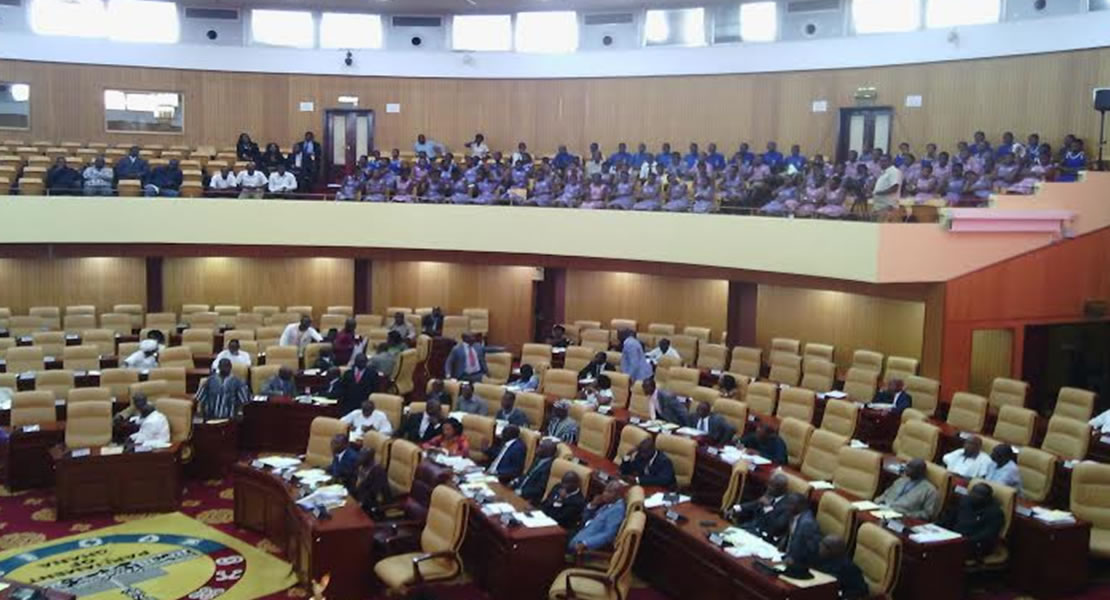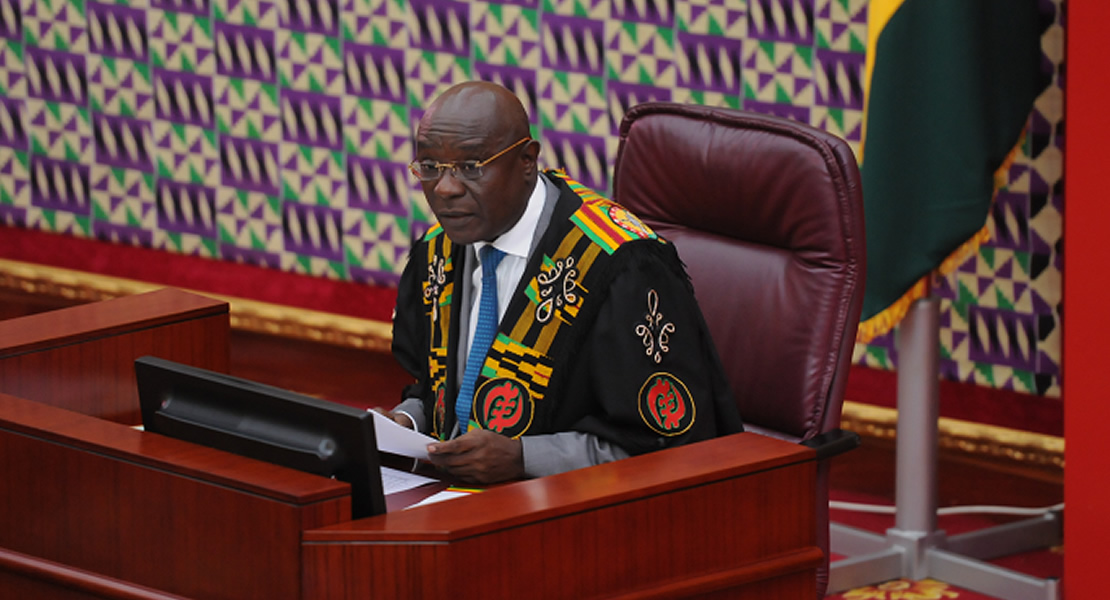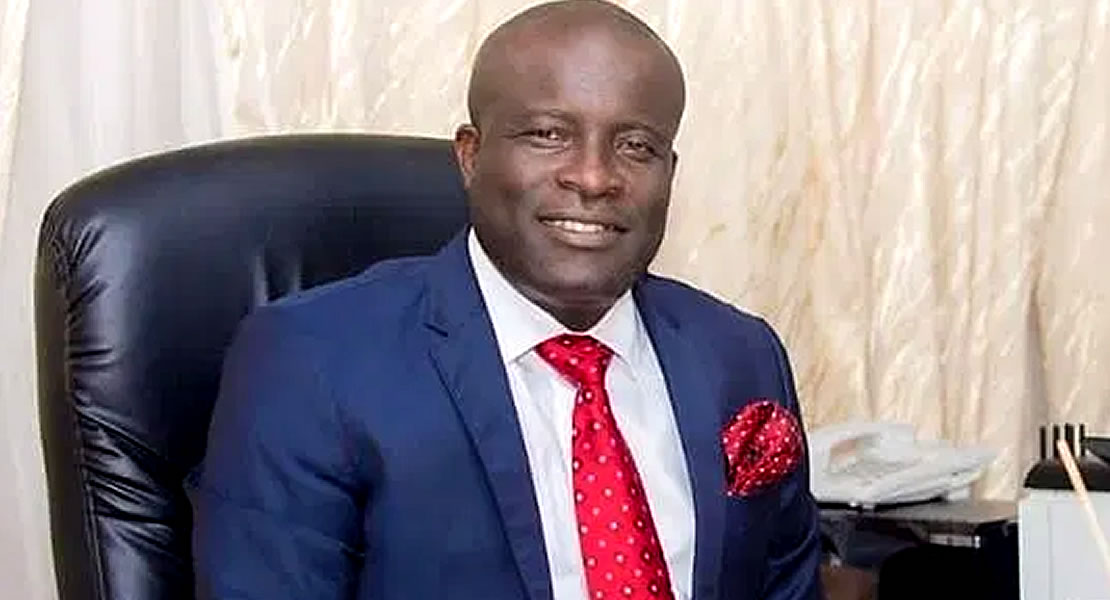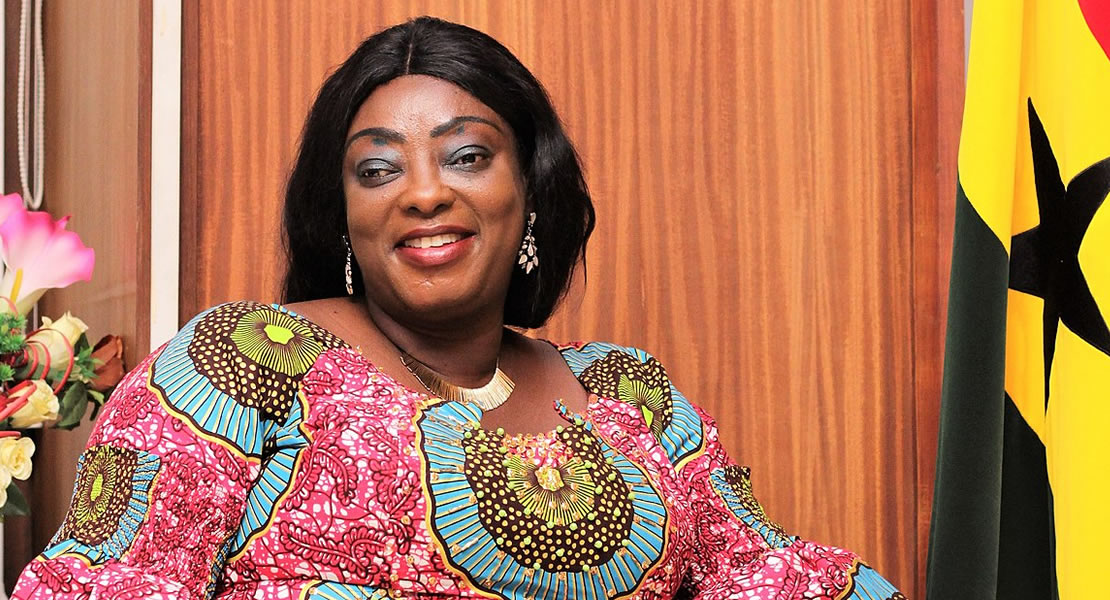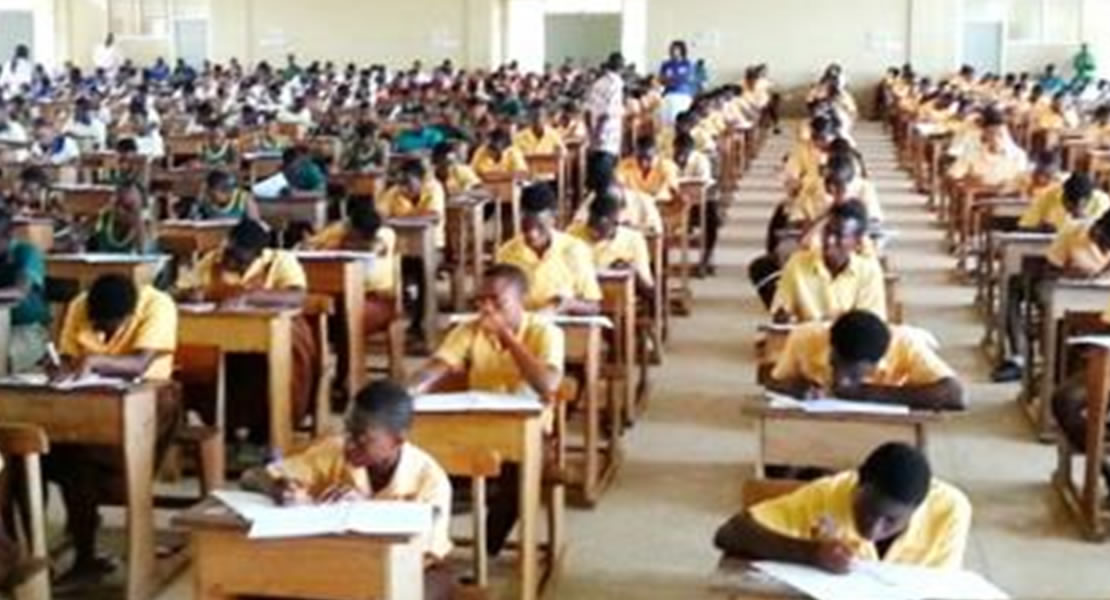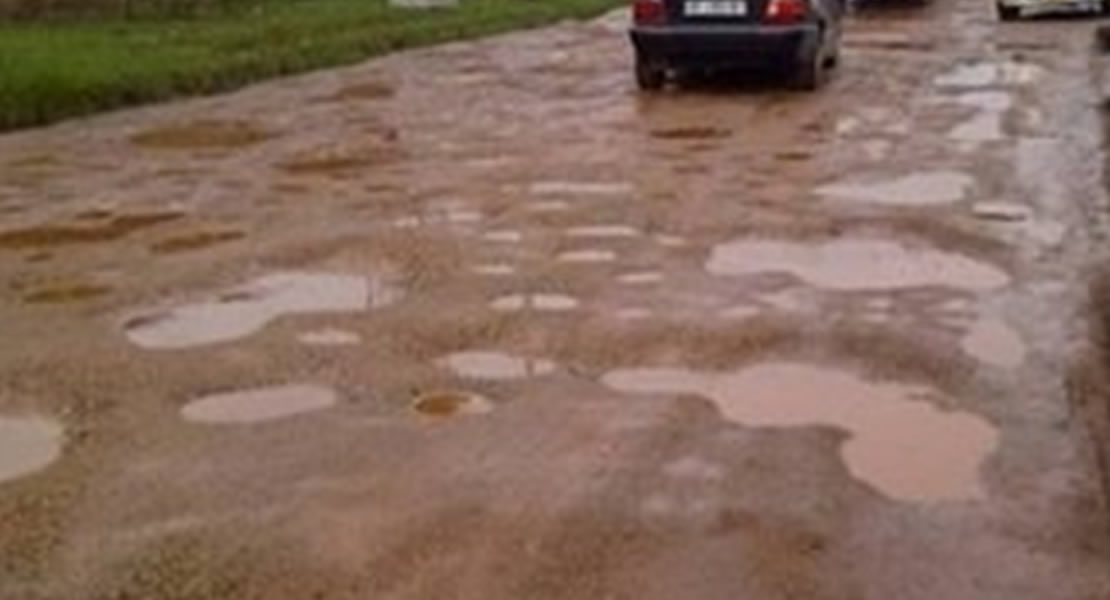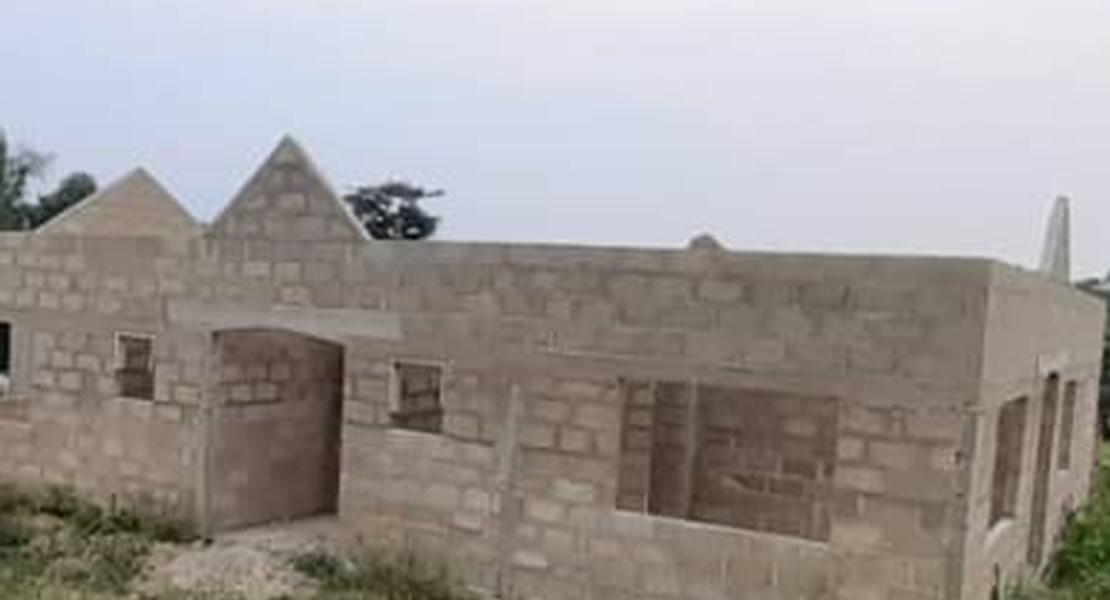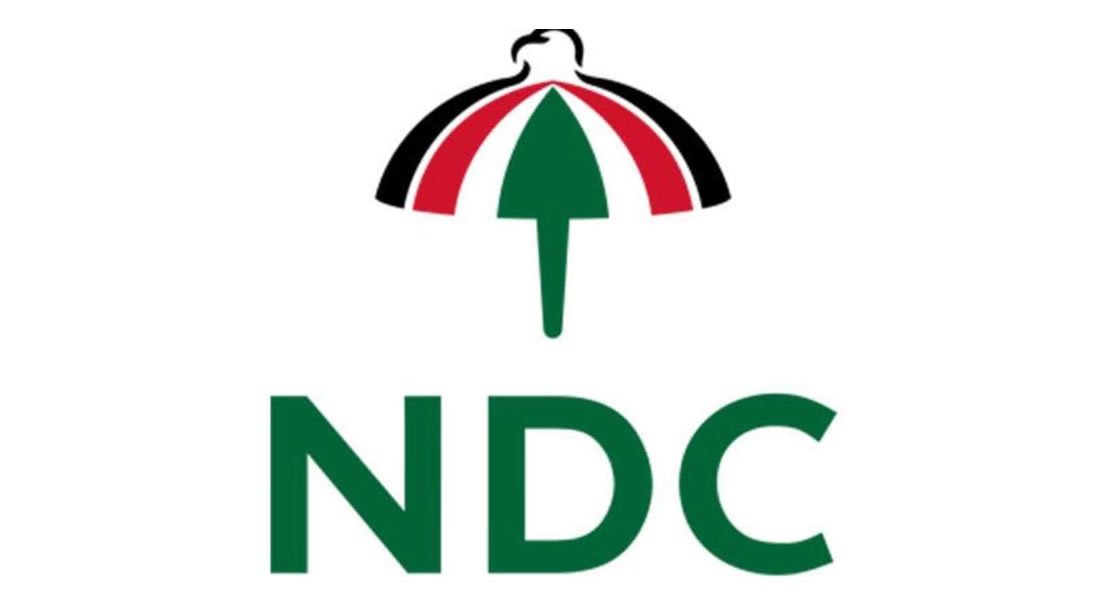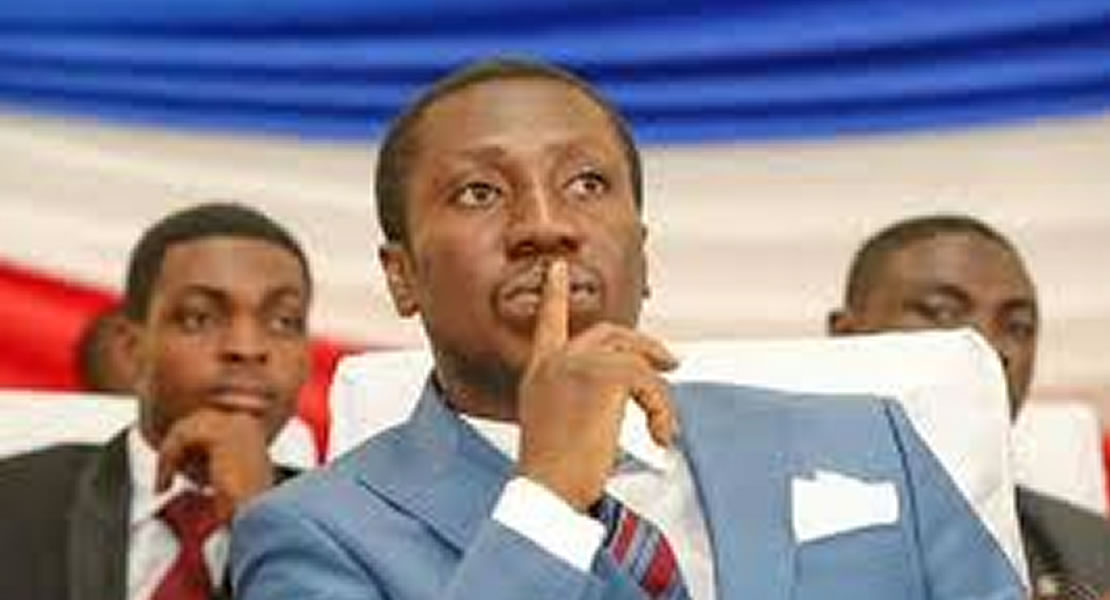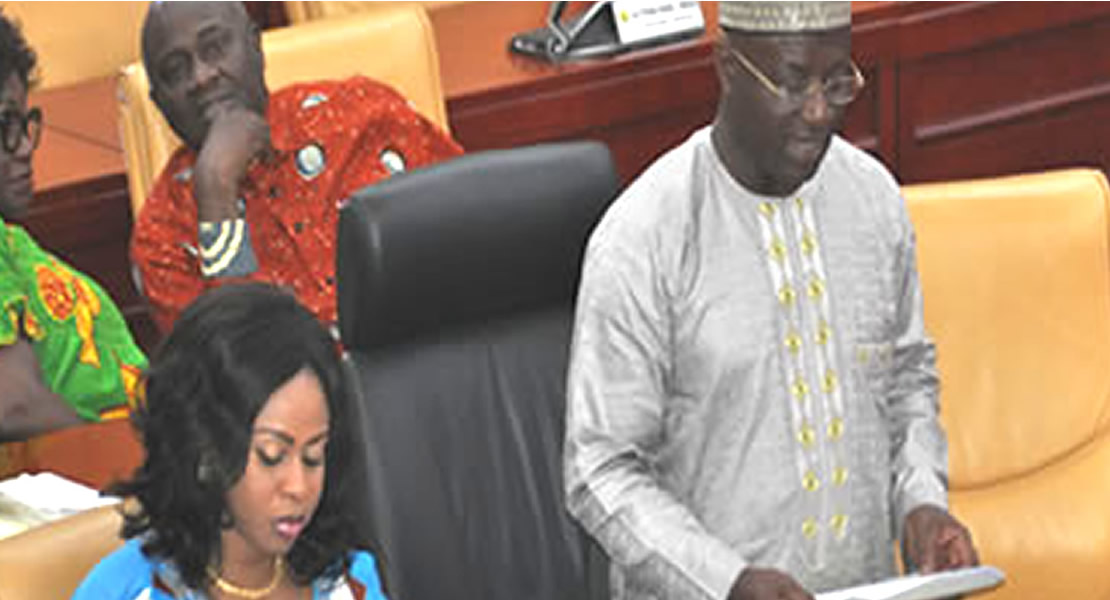The Minority in Parliament has charged the government to render a comprehensive account of all loans secured by the erstwhile Mills and the current Mahama governments since 2009.
The Minority leader Osei Kyei Mensah Bonsu asserts that since 2009, the National Democratic Congress (NDC) government has borrowed over $27 billion and the 2015 budget statement which was presented to Parliament last month itemize a number of signature projects that have been funded by these borrowings since 2009.
“These include: …the total expenditure of which come to $3.5 billion out of the $27 billion borrowed. So where is the rest of the money? How do you account for the $23.5 billion, Mr. Minister?” he questioned?
The Minority Leader who was giving his closing remarks on the debate of the 2015 budget statement and economic policy which was presented to Parliament by the Finance Minister, Seth Tekper on November 19, led his group to insist that the Minister of Finance should make available a “comprehensive list” of all the projects financed by domestic and external borrowing and the respective amounts involved since 2009.”
He was of the view that this will ensure proper accounting for the “staggering increase in the debt stock.”
Hon. Osei Kyei Mensah Bonsu further accused the government of “over borrowing” and asked why recent loan agreements which had been approved by the House were noticeably omitted from the nation’s “rather humongous debt stock.”
He averred that its addition will probably increase the debt stock to about GH¢80 billion.
Even at GHC 70billion it means each Ghanaian, including the child delivered as I speak now, owes GHC 3,500.00 Last year at this time the burden for every Ghanaian was GHC 2,000. One year on, the debt per capita has increased by 75%, no thanks to “yɛntie obi ara” government.
“The country is over borrowing and astronomically increasing our debt pile up which has crossed the 60% threshold that developing countries with limited access to capital flows should worry about in terms of debt sustainability. If the current rate of borrowing continues Ghana shall, before long, plunge into the league of countries with high risk of debt distress which will then disable us from raising financing from the international capital market” he said.
Find below the full statement read by the Minority leader on the 2015 budget
MINORITY LEADER’S WINDING UP ON THE 2015 BUDGET STATEMENT AND ECONOMIC POLICY….DECEMBER 3, 2014
Mr. Speaker:
Thank you very much for this opportunity to wind up for the NPP Minority group in Parliament on the motion: “That this House approves the financial policy of the Government for the year ending December 31, 2015.
The Budget Statement and economic policy for 2015 was brought to this House in accordance with Article 179 of the constitution. That is as it should be. The President on behalf of the state is required under Article 36(1) to “Take all necessary action to ensure that the national economy is managed in such a manner as to maximize the rate of economic development and to ensure the maximum welfare freedom and happiness of every person in Ghana and to provide adequate means of livelihood and suitable employment and public assistance to the needy.
“Clause 2 of that article which deals with the steps to establish a sound and healthy economy strands out critical issues like:
guaranteeing fair and realistic remuneration to encourage higher productivity.
fostering an enabling environment to boost the private sector
undertaking even and balanced development of every part of all regions, especially improving the living conditions in the rural areas.
promoting the robust development of agric and industry, among others.
Mr. Speaker, these are the yardsticks that one must apply to assess the economic policy of the NDC government as expressed in the 2015 Budget Statement.
It is important to state at the outset in pursuit of the above that the constitution obligates the President to Present to Parliament within 2 years after assuming office, a coordinated progromme of economic and social development policies that will drive his budgets. This is the demand of Article 36(5). The 2nd year of President Mahama’s administration ends on January 6, 2015. On that 6th day of January Parliament will not be in session which is why all the Presidents in the 4th Republic have served Parliament with this document in the 2nd and 3rd meetings of the 2nd Session. But not, unexpectedly, President John Mahama has failed this test, is about to fail this test.
Mr. Speaker, the theme for this 2015 Budget Statement and Economic Policy is “Transformational Agenda: Securing the Bright Medium Term Prospects of the Economy”. The word “Secure” means “to be free from danger, trouble, worry or uncertainty” That is according to Chambers 21st Century Dictionary. The President has since 2013 been assuring all who care to listen to him that the “medium term prospects of the (country’s) economy are bright”. In the context of that declaration, “securing the bright medium term prospects of the economy” which is the theme of the budget can only mean, that in the eyes of the President, the budget seeks to “firmly fix” or “firmly assure of the custody” of the bright medium term prospects of the economy.
The President indicated in his 2014 “State of the Nation Address that “our economic fundamentals remain sound and the mid-term prospects are bright”. The President buttressed his bold declaration with statistics on economic growth. If one were to assume rather erroneously, as the President did, that economic growth rate alone make up economic fundamentals, then it becomes relevant to yield to facts to enable one to properly judge the President’s descriptions of the state of our economy which this budget statement borrows a leaf from.
GDP GROWTH INDEX
The GDP growth rate which was inherited by President Kufuor was 3.7%. In 2001 the GDP grew at 4.2%; in 2002 it grew at 4.5% rising to 5.2% in 2003 and to 5.6% in 2004. It rose to 5.9% in 2005; 6.4% in 2006; 6.3% in 2007 and to 7.3% in 2008 which was later reviewed to 8.4% after the rebasing of the economy. This is steady growth and this steady growth occurred without the benefit of crude oil exports. Mr. Speaker, this is how a really sound economic growth aggregate looks like. Now compare with the rather convulsive growth rates achieved under the Mills-Mahama administration. In 2009 GDP growth rate climbed down to 4.0; in 2010 it grew at 8.0 and upped to 14.4% in 2011 when, for the first, time oil revenues hit the nation’s coffers. It is important to underscore that the non-oil sector registered 7.8%.
We were told the GDP (with oil) grew at 7.6% in 2013. The figure was later reviewed downwards to 5.8% with the non-oil sector registering 4.1%. In 2015 the GDP growth rate of 2013 has been revised again to 7.6% and the 2014 growth rate is 6.9% (ref. page 11 of the 2015 budget). All these rebased figures since 2011 have oil components. What is crystal clear is that the non-oil sector of the economy has never managed to grow at 8.4% since 2009 under the Mills-Mahama administration inspite of the pontifical high mass that they have every year organized to celebrate what they deem as bright economic prospects.
OTHER INDICATORS
Mr. Speaker, let us consider the other economic indicators: Depreciation: The cedi depreciated by 17.6% in the first quarter alone this year. As at the end of August 2014 the cedi had depreciated by over 90% since December 2013. As we speak now the cedi has made some recovery from ¢3.85 to $1 to ¢3.20 and that represents a real depreciation of over 65% even though we are told that officially it is about 31%. I believe the GSS may have to tell us what the basis of their calculation is. For in December 2013 the exchange rate was GH¢1.95 to US$1 and the 2014 budget projected that the cedi will get to GH¢2.25 to US$1 in December 2014. Today, it is GH¢3.20 to US$1.
In the 8-year administration under President Kufuor the cedi, from GH¢0.72 to GH¢1.1 to US$1, depreciated by 53%. Six years into the NDC administration the cedi has depreciated by 195.5% and we are still counting.
Mr. Speaker interest rates now hover around 30%; our gross international reserves we are told have since August 2014 recovered from 2.2 months to 3.3 months but the net reserves is far less than three weeks. Our trade deficit was US$1.3billion. The country’s fiscal deficit and current account deficit have all escalated since 2008. Indeed 2014 represent the third year in a row that the country has had a twin fiscal deficit and current account deficit. The public debt stock is over GH¢70billion from GH¢9.5billion in December 2008.
Mr. Speaker, there are recent loans that Parliament has approved which are not included in this rather humongous debt stock. If these are added we probably shall be talking about a debt stock of close to GH¢80billion. Even at GH¢70billion it means each Ghanaian, including the child delivered as I speak now, owes GH¢3,500.ØØ. Last year at this time the burden for every Ghanaian was GH¢2,000. One year on, the debt per capita has increased by 75%, no thanks to “y1ntie obi ara” government.
Mr. Speaker, the 2008 debt stock of GH¢9.5billion represented 33% of GDP. Today, 6 years into the Mills-Mahama administration the GH¢70billion debt stock is almost 7½ times or indeed 636% increase in the debt stock. The debt stock has risen to 60.8% of GDP as at September 2014. Inflation, meanwhile, has risen to 17%.
The country is over borrowing and astronomically increasing our debt pile up which has crossed the 60% threshold that developing countries with limited access to capital flows should worry about in terms of debt sustainability. If the current rate of borrowing continues Ghana shall, before long, plunge into the league of countries with high risk of debt distress which will then disable us from raising financing from the international capital market.
Mr. Speaker these represent the gory circumstances of our economic fundamentals and if these represent bright prospects for the economy the gloomy prospects of which must be secured, then we need God Almighty to rescue us.
ACCOUNTING FOR BORROWED MONIES
Since 2009 the NDC administration has borrowed over $27 billion. This is besides oil and tax revenues. No government in Ghana’s history has been so lucky. Unfortunately, whilst borrowing revenue inflow have increased, capital expenditure as a percentage of GDP has drastically declined. The evidence is that over 90% of the increase in government spending has been for recurrent expenditure. In the 2015 budget the Minister of Finance has enumerated a number of signature projects that have been financed by these borrowings since 2009. These include: …the total expenditure of which come to $3.5 billion out of the $27 billion borrowed. So where is the rest of the money? How do you account for the $23.5 billion, Mr. Minister? We on this side of the House, will immediately file an urgent question for the Minister of Finance to provide the House and indeed the people of this country with a comprehensive list of all the projects financed by domestic and external borrowing and the respective amounts involved since 2009 to enable a proper accounting for the staggering increase in the debt stock.
WAMZ Countries
Mr. Speaker, the 2013 economic growth in countries in the West African Monetary Zone (WAMZ) most of which are non-oil producing averaged 6.7%. The countries in that league are The Gambia, Guinea, Sierra Leone, Liberia, Ghana and Nigeria. In 2013 Ghana’s non oil sector grew at 5.8% which was less than the average growth in the sub-region. In 2013 Ghana placed last in the WAMZ league as it was the only country to have met only 3 out of the 10 primary and secondary criteria. Indeed, by December 2013 the country slipped on “exchange rate stability” and ”real interest rate” and hence at the close of 2013 we met only one of the 10 criteria. That singular criterion was that the “Central Bank (BoG) financing of the country’s deficit for 2013 was less than 10% of the previous year’s tax revenue”. Ghana’s abysmal record of fiscal year 2013 was the worst performance by Ghana in 20 years. Accordingly, we took government to task on this. For 2014 the provisional GDP growth rate for the WAMZ countries in the sub-region is about 6% Non-oil producing countries!!
Mr. Speaker, the Minister of Finance, for the first time since I have been in Parliament has refused to present the table of performance of the country in the WAMZ league in the Budget document. The reason is simple. The picture will represent a bitter truth to government and the country and hence, for them, it is better not to show it at all. Mr. Speaker, truth is like cork and a responsible government which is committed to transparency, probity and accountability must not hide anything from the citizens. The cardinal principle of good budgeting is transparency. All relevant information for sound budgeting should be available in an accessible format. Budget information must be accurate, reliable and comprehensive. What is the government afraid of? Let the people know the truth.
Mr. Speaker; we are told in paragraph 131 of the budget statement that the transformational agenda rests on three strategic interventions namely:
strengthening and deepening the essential elements and institutions of good governance…. Parliament is the bastion of democratic governance… How has Parliament been strengthened in the budget? The Electoral Commission is an essential institution in good governance…How has that institution been resourced in this budget?…Charity, they say begins at home. Parliamentary democracy is not strengthened if their request is decimated. I know the Electoral Commission has not been allocated resources to perform some critical activities which they need to do in 2015 preparatory to the 2016 General and Presidential elections. The sign posts are emerging. Mr. Finance Minister, do what is right before December 2016. Nobody should have any cause to complain again!!
Promoting export-led growth through products that build up on Ghana’s comparative strength in agricultural raw materials is the second of three strategies interventions. Mr. Speaker, there has been a paradigm shift in international economy and geopolitics: the discourse now is on competitive advantage and no longer comparative advantage or strength.
The third is “anchoring industrial development through prudent use of natural resources based on locally processed value addition.
AGRICULTURE
Mr. Speaker, the second strategic intervention that government intends to make is in the area of agriculture…to promote export-led growth. The question to ask is which agricultural product is government piloting in this promotion? The budget mentions only one agric product, cotton (Ref. Par. 351). If we want to stimulate growth in the cotton industry, then we need to be more scientific. The yarns of cotton produced in Ghana are short and twining comes with additional expenditure. This is why the Akosombo, Juapon and Tema Textile companies, even in the sixties had to import long-yarned cotton from Egypt and Sudan. Mr. Speaker, re-afforestation has almost collapsed whilst logging has gone into high gear, contributing 16.5% in the overall agricultural growth of 5.3% in 2014. It should tell us that we are fast depleting our forest cover. Mr. Speaker, at the turn of the 20th Century the forest cover of Ghana was 8.5million hectares. Today, the forest cover is less than 700,000 hectares and that is in spite of all pretensions to the country. In 2014 there were many reported cases of chainsaw activities and illegal lumbering. I am not sure anybody heard of new acreages of degraded lands being re-afforested!
Mr. Speaker, if we must admit it, agriculture is not doing well (ref. pg.12). Agric is not doing well because of the paltry budgetary allocation to agric. In December 2013 we lamented the fact that only 1.07% of total budgetary allocation went to agriculture in 2014 that is excluding the ABFA from the Petroleum Fund. This explains why in 2014 $1.5billion of foodstuffs was imported into the country against a food import bill of $600 million in 2008.
The import of fish poultry, tomatoes, cooking oil, have all almost doubled between 2008 and 2014.
The Accra plains and Afram Plains irrigation projects which have the potential of positively in impacting food security have remained on the books. The 2009 – 2013 budget documents all mentioned these projects. The 2015 document mentions the development of Accra plains in line with tradition but that is all what there is to it as it has been since 2009 (ref. par 347).
INDUSTRY
Mr. Speaker, the third strategic intervention relates to industrial development through prudent use of national resources. High fallutin pontifications! The plain truth is that industry is not doing well. Industry was targeted to grow at 6.8% in 2014 from the high 11% growth in 2012. It grew at 4.6% and that was driven by petroleum activities which grew at 18.2% (par 44). Manufacturing grew at negative 8.0%. Construction grew at 12.8% but employment in construction is usually short-term and transitional. The real deal is in manufacturing which is not doing well.
Manufacturing industry is not doing well because of lack of access to credit; high interest rates where they are able to access credit; high cost of utility services and, especially, the incessant power outages. Mr. Speaker, the depreciation of the cedi is worrying to industry. In that sense the platform to stabilize industry has not yet been created, so using industry to secure the bright prospects of the economy in 2015 can only be a mirage.
LOW INVESTOR CONFIDENCE
Mr. Speaker, the rising cost of doing business, occasioned by the huge taxes, lack of access to credit, high interest rates, “dumsor” “dumsor”, rising inflation, high utility tariffs, a weakening currency all point to a clear case of declining consumer and investor confidence in the system and one would have thought that the budget would have devised and introduced ingenious ways to stimulate growth in investor and consumer confidence. Alas, there is none!
EMPLOYMENT
Mr. Speaker, where agriculture and industry are not doing well employment cannot be generated. We need to provide employment to increase productivity and generate growth yet there are no new bold measures in this direction.
INFRASTRUCTURE
On infrastructure the Minister of Energy asserted in his presentation, that in government the NPP did not add a megawatt to the electricity generation capacity. The Ranking Member, Hon. K.T. Hammond was sufficiently agitated and he poured his heart out. Uthman dan Fodio is the one who said “conscience is an open wound which only truth can heal”. For the avoidance of doubt the following plants were started or added during NPPs 8-years in power.
VRA plant – Tema. Funded by government
Whilst we are at this, Mr. Speaker, it may be important for the nation to know why inspite of the fout that the price of Brent crude and light crude have dropped to $66 and $62 per barrel respectively, the price of petroleum products locally have not commensurately responded? Has the automatic Price Adjustment Formula been abandoned?
By way of emphasis let me also strongly indicate to GNPC that they cannot take the law unto themselves. A fully subvented state enterprise cannot use revenues due to the State as collateral to secure loans. The PRMA allows only the State to use our oil revenues as collateral. That privilege is not extended to any corporation, regardless of its status. We will stand up against that misadventure.
EDUCATION
We need to strenuously work to achieve MDG2. Beyond that, one would have thought that having established the three strategic nodal areas of intervention the budget for transformation was going to provide the connect between how education would feed into the strategic needs of the economy. In other words, how would education positively impact efficiency of labour force in both agriculture and industry?
Mr. Speaker, whilst the budget for the education sector has increased by 15.9% over the 2014 allocation inflation over the same period was 16.9% whilst the depreciation of the cedi is in excess of 60%. In real terms, therefore, there is negative increase in funding education. In the event, investment in education may suffer as personnel emolument cannot touched.
The Chairman of the Committee on Education made some noteworthy observations. He said 25% of the entire budgetary allocation goes to education i.e. GH¢5.8billion in 2014 and GH¢6.74billion in 2015, yet these do not reflect in the performance of pupils in public schools due in particular to poor management and administration as well as poor supervision of and output from teachers. That explains why even when gross enrollment rate is rising at the level of basic education the dropout rate at the JHS and SHS level is getting rather alarming. The Ranking Member on Education has related to this. He also related to arrears in GETFUND, School Feeding, Capitation Grant and the salaries of new Teacher recruits. The combined effect is the lowering of morale. He also alluded to the many strikes: POTAG, UTAG, NAGRAT, TEWU etc. These will negatively impact the performance of pupils and students. Government must show concern.
Mr. Speaker, colleagues who have spoken before me have been most eloquent about difficulties in almost all the sectors: Road, health, works and housing, local government, Trade, Defence & Interior, Youth, Sports and Culture, Communications, etc. I guess we shall have some more time to deal with the sectors in the consideration of their estimates.
CORRUPTION
Let me conclude, on issues of corruption that have lately befuddled our governance system. Yesterday the Ghana Integrity Initiative, the local chapter of Transparency International launched their report on 173 countries. Ghana placed high on the list of corrupt countries scoring less than 50 points. The issues they related to include recovering so-called judgment debts that have been wrongfully paid; gathering the political will to prosecute cases of corruption in high places; SADA, GYEEDA, SUBA matters, among others. One could only have been sorely disappointed when the President plaintively declared that (government) “will introduce new rules and deploy systems to strengthen expenditure management which will reduce waste and corrupt practices (ref. par 886)”. How, when, where we are not told! Empty rhetorics!! Yet corruption has become a canker.
Mr. Speaker, we are told in paragraph 196 that the National Security “Council provides 24 hour protection to the Executive,” and other bodies. The Judiciary is not mentioned, the Legislature is not mentioned… That is how National security understands “protection”. No wonder, the Judges and Parliamentarians are not accorded the best of treatments.
NARCOTICS
Mr. Speaker on the way forward in fighting trade in narcotics we in the NPP minority have proffered suggestions:
NACOB must be overhauled
The Bill to turn NACOB into a Commission prepared in 2008 must come to Parliament as soon as possible.
The position of the Executive Secretary of NACOB must be taken from politicians and revert to professional intelligence operatives.
Cooperation in the operation West Bridge must be deepened.
EUROBOND
Government has not missed any occasion in announcing the success it has chalked in procuring the Eurobond. Issues have been raised about what has become of it. Can the Minister let us know where the amount procured is located, and what is intended to be done with it and what is happening to it, wherever it is.
STATUTORY PAYMENTS
We on the Minority side have drawn attention to the breach of the statutory provisions with respect to the non-payment of Social Security contribution by government as of September 2014. DACF and GETFUND. As has been before we expect the Minister to seek explicit approval from Parliament to be allowed to pay these arrears by a specified time period. In addition the Minister should assure Parliament that going forward he will be in compliance with the various Acts and provide quarterly reports to Parliament on the status of implementation.
CONCLUSION
All told, Mr. Speaker, the nature, character, form and shape of the 2015 budget is anything but TRANSFORMATIONAL. The short term prospects of the economy are gloomy, the Medium Term prospects have no proper foundation hence the medium term cannot be bright. The Transformational Agenda can only be a forlorn hope without any basis. But fellow Ghanaians let us all come together to rescue this sinking ship, as clearly a sinking fund cannot do it. Let us all roll up our sleeves and put our shoulders to the wheel especially since both the driver and the mate have clearly indicated to all of us that they are clueless in the face of such gargantuan maladministration.
Mr. Speaker, thank you once again.
Kwadwo Anim/Ghanamps.gov.gh
